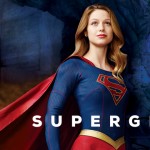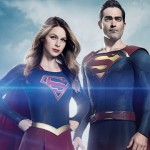We live in a pretty cynical world at the moment. The cynicism in our world is reflected in a lot of shows that are currently popular: The Walking Dead, How to Get Away With Murder, Game of Thrones, etc. This love for cynicism especially applies to movies like Man of Steel, The Dark Knight Rises, and Batman vs Superman: Dawn of Justice. While Batman vs Superman currently has a 28% critic rating on Rotten Tomatoes, the audience rated the movie 72%, which means that there is a good number of people out there who are willing to defend this movie. In the Marvel Cinematic Universe, Daredevil, Jessica Jones, and Agents of SHIELD are garnering great praise even though they’re all set in a darker, grittier side of the verse.
Superheroes weren’t always dark and gritty, though. It’s just a trend that has been occurring in the various film and television adaptations of popular comic books. People mistakenly think that if a show is dark and gritty, people will take things more seriously. However, choosing to go with a dark tone comes at the cost of the audience possibly losing interest. That’s not to say that all tragedy sucks. According to TVTropes: “A good tragedy works because the characters involved are given a chance to escape their downer ending but, for whatever reason, fail to do so; take away this chance, and usually what will happen is that the story just ends up being a lengthy description of unremittingly unpleasant things happening to someone.” But even so, there is evidence of adaptations that keep a more realistic or idealistic tone while still being well-written.
The shows that go under the DC Animated Universe shows that came out in the 90s and early 2000s mostly vary in tone. Batman:The Animated Series and Batman: Beyond had a dark and gritty tone, but the major characters shine a light of hope in the corrupt city of Gotham. That shining hope is something that the current lineup of DC movies lack. Ask any fan of the DC Animated Universe and you’ll learn that most of them compare the current adaptations of the DC shows to the animated series that came before. Yes, the writing was that good.
That sense of hope was there in Daredevil season 1 and was sort of promised towards the end of Jessica Jones. It’s also a driving point of Arrow, but one major problem all three of these shows suffer with is that the sense of hope gets clouded by the characters’ various issues. Daredevil suffers from a martyr complex, Jessica Jones has issues with connecting to people, and Oliver Queen would rather keep secrets from everyone.
The current lineup of films from the Marvel Cinematic Universe has more balanced tones in terms of idealism and cynicism. On the more cynical end, we have Captain America: Civil War and Avengers: Age of Ultron. However, the dark, angsty tone of the movies make sense because it builds up from real consequences to the actions established from the previous films. The Avengers went out of their way to make sure that they create as little collateral damage as possible, but as the trailers have shown, all the collateral damage from the past several movies have added up to a lot. I’m seriously looking forward to seeing Civil War, even though I know that there may be characters who will probably be killed off by the end of the movie, because I know that eventually, these heroes will put aside their differences to defend the world again when Thanos tries taking over the world.
A good example of a group of anti-heroes that still maintains an optimistic tone is Guardians of the Galaxy. The titular Guardians aren’t heroes in the conventional sense. They’re not good in essentials, but they are willing to do the right thing when the situation calls for it. The movie maintains a humorous tone in spite of the fact that the team consisted of “a thief, two thugs, an assassin, and a maniac.” The reason the movie is enjoyable is because the movie has tons of humor and characters that everyone can relate to. Legends of Tomorrow has a similar premise in that the members of the team aren’t all straight-laced heroes and the lighthearted, humorous tone throughout most of the episode.
On the more idealistic ends of the scale are The Avengers, The Flash, and Supergirl. The Avengers has the most idealistic tone out of all of the Marvel Cinematic Universe, even with Coulson’s death, because the show’s conflict was simple: All of the Avengers want to stop Loki from taking over the world, but they had conflicting ideas on how to stop him. Coulson’s death became the reason that the Avengers came together to take down Loki. Tie it all together with Joss Whedon’s humor and the fact that Coulson wasn’t actually dead, and you have the basics of a perfect superhero movie.
The Flash has moments of cynicism, especially with the new multi-verse story arc, but overall, the show maintains an idealistic tone. Flash, up to this point, has never killed anyone in the series. Instead, the various villains are either kept in the Pipeline or in Iron Heights. Since Barry Allen is a scientist, he and his friends work together to find smart solutions to the various problems.
This method of problem-solving carried over to Supergirl. I’m not gonna lie. Last night’s crossover episode “World’s Finest” was a huge sigh of relief after the disappointment of Batman vs Superman. I love Supergirl. A lot. But I also know that in spite of the fact that Supergirl has all these awesome powers, she’s not perfect. She tends to jump into situations without thinking and her emotions often blind her better judgment. I also love how realistic the show is, even with the idealistic tone. Supergirl is held accountable for her actions and when she finally shows how far she is willing to go to protect National City, the city is more than willing to protect and forgive her.
We need to have shows with idealistic tones to balance out the cynicism we have in this world. I really hope Supergirl doesn’t get cancelled because we need shows like Supergirl to give this cynical world an example of how idealism can change the world for the better.











